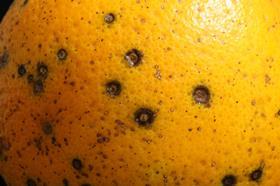
The Citrus Management Committee (CGC) has criticised the failure by the Spanish government for failing to ensure that the country plays a more active role in monitoring EU imports.
The European Commission recently named five centres as European Reference Laboratories (EURLs), responsible for carrying out analyses on imports of fruits and vegetables from third countries for the presence of pests and diseases.
The EURLs will be located in France, Belgium, the Netherlands, Slovenia and Italy.
The CGC, which represents the interests of some of Spain’s biggest citrus exporters, issued a statement on Friday saying: “Despite the evident strategic importance of such centres, the Ministry of Agriculture did not put forward a single Spanish candidate…ensuring that this vital role has been left largely to centres in non-producing member states who are instead large fruit and vegetable importers”.
The committee’s president, Manuel Arrufat, said the “passivity” shown by the Spanish government in failing to apply for entities such as IVIA, the world-renowned Valencian Institute of Agricultural Research, demonstrated the “irrelevance of Spain in the field of plant health”.
The CGC contends that making importing countries like the Netherlands responsible for monitoring imports for the presence of serious pathogens like HLB an citrus canker goes against the interests of Spain and other major EU producers.
“We can hardly defend ourselves against the entry of foreign pests if it is the EURLs of countries whose business is to import who are responsible for instructing EU inspectors and the rest of the laboratories on how to diagnose and interpret symptoms in fruit samples or determine what analytical methods should be used,” Arrufat continued.
The CGC is also unhappy about being left out of IVIA’s Agri-Food Advisory Council, a new consultation body consisting of key players in the agri-food chain including professional associations, unions, cooperatives, universities, research centres and food distributors, whose role is to shape Spain’s future fresh produce strategy.
“CGC members channel around 70 per cent of Spanish citrus exports and are big producers in their own rights, so they could provide valuable information on pests and diseases, as well as on citrus varieties and their behaviour in the various links of the supply chain,” Arrufat said.
He said this differed widely to the approach taken by other leading citrus producing countries like the US, South Africa and Israel, where private companies are involved in national research programmes and have played a key role in the development of new varieties and boosting the profitability of their respective industries.
The committee said its inclusion in the council would bring greater agility to the sector, helping to attract external financing and talent from outside the sector.



